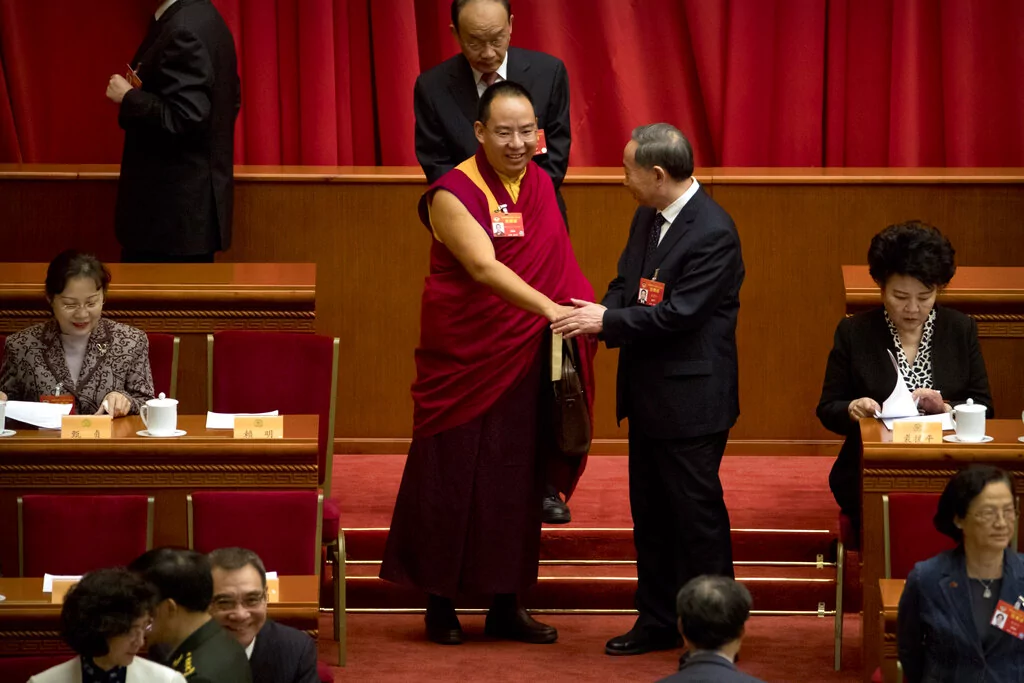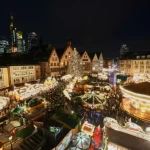
His Holiness Tenzin Gyatso, the 14th Dalai Lama, exiled head of Tibet, and international figurehead of Tibetan Buddhism, is turning 90 next year.
The widely revered spiritual leader takes fewer and fewer interviews and reports having less energy for public appearances due to his advanced age.
When he dies, Tibetan Buddhists around the world will need to find the next Dalai Lama. But the Chinese Communist Party, which has controlled Tibet since 1951, has made that process nearly impossible.
He previously promised to prepare a letter around his 90th birthday outlining how his successor would be found. Such guidance has not yet been publicly acknowledged.
While hundreds of millions of people around the world wish the Dalai Lama a long life, the ramifications of his death are becoming impossible to ignore — without a contingency plan, this elderly Dalai Lama may be the last in history.
Who is the Dalai Lama
The Dalai Lama is the most authoritative office in the Gelug school of Tibetan Buddhism. He is believed to be the reincarnation of the previous holder of the title and an immortal avatar of the Buddha Avalokiteśvara, bodhisattva of compassion.
The office was the religious and political leader of Tibet before it was conquered by the People’s Republic of China in 1959.

Since his escape into India during the takeover, the 14th Dalai Lama and his court have operated as a government in exile — a symbol of unity for the Tibetan diaspora and leaders of the movement for a free Tibet.
This has made the elderly Tenzin Gyatso an enemy of the Chinese state, which sees him as an opposition figure threatening to undermine its authority over the Tibetan population.
Reincarnation, interrupted
The most important figure in determining the new reincarnation of the Dalai Lama is the second-highest authority in the Gelug sect, the Panchen Lama.
The Dalai Lama, in turn, affirms the reincarnation of the Panchen Lama after the officeholder dies. The two offices are co-dependent and complementary, believed to be two spirits continuously recognizing one another across time and lifespans.
In 1995, the Chinese Communist Party put a sudden stop to this cosmic dance when it abducted Gedhun Choekyi Nyima, a 6-year-old boy recognized by the 14th Dalai Lama as the reincarnation of the Panchen Lama.
The child was abducted by Chinese police and brought to an unknown location deep inside the country. He has not been seen since.

The Chinese government has claimed that Gedhun Choekyi Nyima is doing well, living a normal life in an undisclosed location. The Dalai Lama has stated that a “reliable source” informed him that the boy is “alive and receiving normal education.”
To fill the place of the appointed Panchen Lama, the Chinese government offered its own selection — a young man named Gyaincain Norbu who is enthusiastically pro-communist and pro-China.
“Reincarnation of living Buddhas, including the Dalai Lama, must comply with Chinese laws and regulations and follow religious rituals and historical conventions,” the foreign ministry announced in 2019.
China controls the future
With Tibet and the office of Panchen Lama under Chinese control, the future of the Dalai Lama lineage is facing a critical juncture.
When Tenzin Gyatso dies, the Chinese Communist Party will likely use its government-appointed Panchen Lama to name a new Dalai Lama — one who is more open to its control of Tibet.
The Dalai Lama has sharply criticized such a prospect as unacceptable and illegitimate, urging Tibetan Buddhists to reject any Chinese-sponsored reincarnation.

“It is particularly inappropriate for Chinese communists, who explicitly reject even the idea of past and future lives, let alone the concept of reincarnate Tulkus, to meddle in the system of reincarnation and especially the reincarnations of the Dalai Lamas and Panchen Lamas,” Gyatso wrote in 2011.
He continued, “Such brazen meddling contradicts their own political ideology and reveals their double standards. Should this situation continue in the future, it will be impossible for Tibetans and those who follow the Tibetan Buddhist tradition to acknowledge or accept it.”
With Gedhun Choekyi Nyima still living in anonymity inside China, the Gelug school will not have its own Panchen Lama to name a legitimate successor.
Additionally, with China in control of Tibet, any reincarnation within the area would risk interference or kidnapping by the Communist Party.
An unwilling reincarnation
The 14th Dalai Lama has spoken frequently about these obstacles for his eventual reincarnation but has offered little consistency in how they should be overcome.
In 2011, the Dalai Lama suggested that he would provide guidance “when [he’s] about ninety” — and has since insisted that the capacity for deciding the future of the religious office is his alone.
If “a need for the Fifteenth Dalai Lama” to be found was recognized, he said, the “responsibility for doing so will primarily rest on the concerned officers of the Dalai Lama’s Gaden Phodrang Trust.”
This trust would consult with the foremost leaders in Tibetan Buddhism from various sects, seeking “advice and direction from these concerned beings and carry out the procedures of search and recognition in accordance with past tradition.”

“I shall leave clear written instructions about this,” the Dalai Lama wrote. “Bear in mind that, apart from the reincarnation recognized through such legitimate methods, no recognition or acceptance should be given to a candidate chosen for political ends by anyone, including those in the People’s Republic of China.”
Asked if he will reincarnate outside Tibet, the Dalai Lama has said it’s a possibility. He has also expressed openness to reincarnating as a woman, as long as she’s “attractive.”
At multiple points, the monk seems to have reached a breaking point and threatened not to reincarnate at all.
“Any culture needs to evolve over a period of time. Like, the Buddhist community in India has no tradition of reincarnation or lama institution. It developed in Tibet. I think there is some feudal connection to it and needs to change now,” the Dalai Lama reportedly told a group of college students in 2019.
He continued, “I feel, when the practice of reincarnation began there was wisdom in it. But there are good lamas and bad lamas, those who bring disrepute to the community. The system should end, or at least change with changing times.”
CLICK HERE TO READ MORE FROM THE WASHINGTON EXAMINER
The Dalai Lama may choose to reincarnate. He could decide to declare his reincarnation line terminated.
Whatever his guidance, there will be many different factions across China and Tibet seeking to push their own idea of what the Dalai Lama should be.







